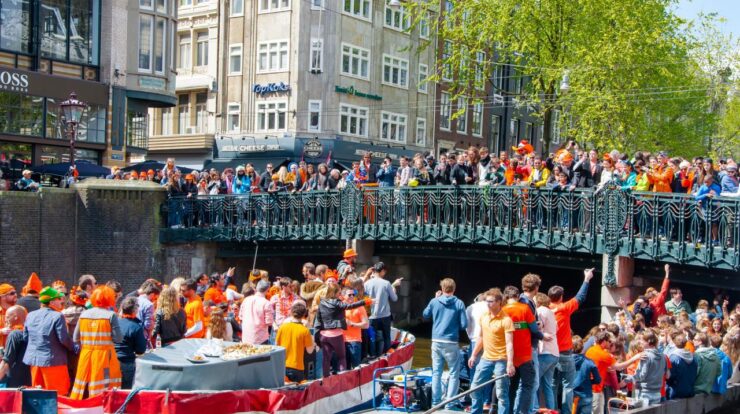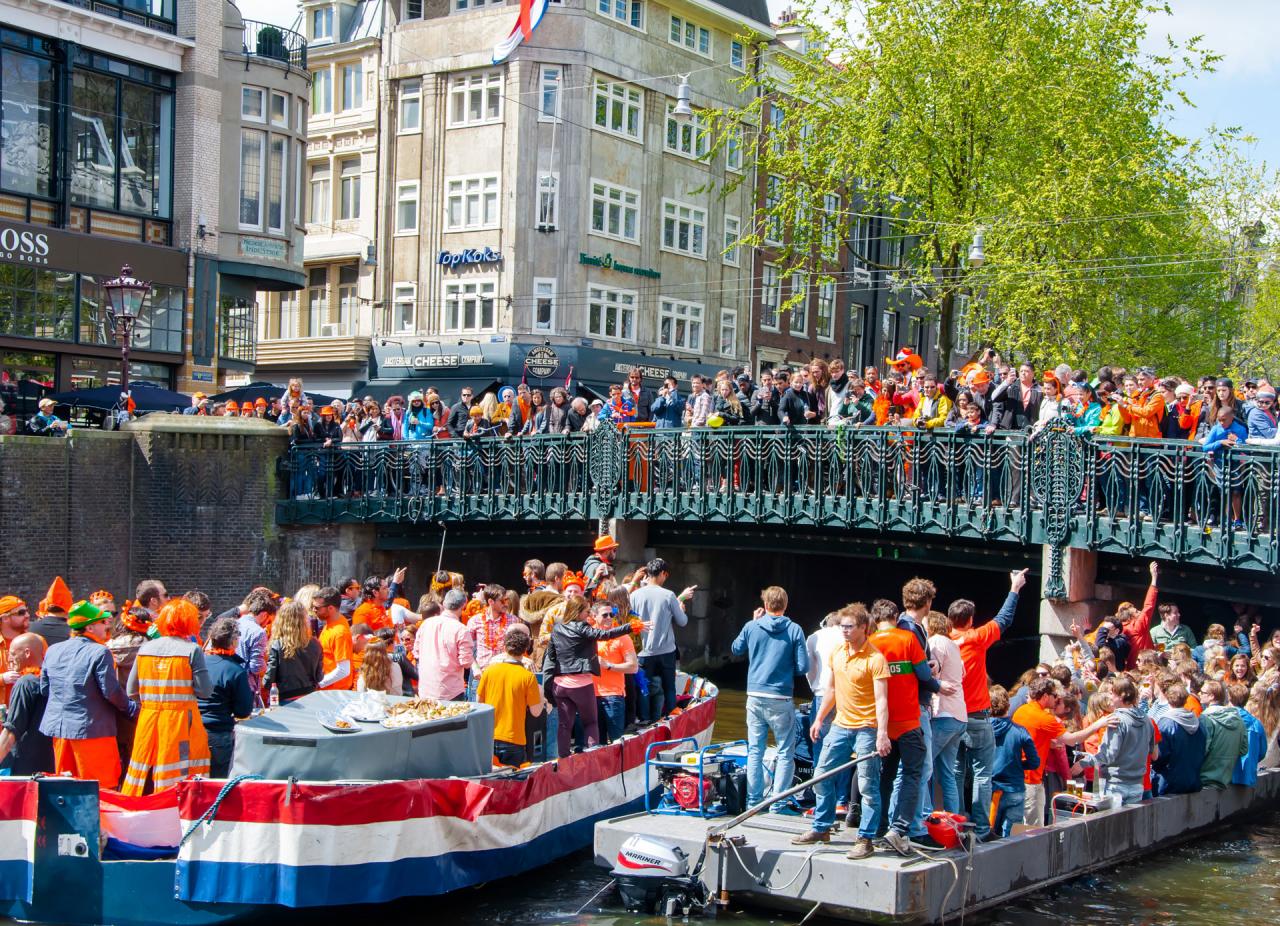
Dutch kings day – Dutch King’s Day, a vibrant celebration observed annually in the Netherlands, is a spectacle of unity and national pride. With its origins deeply rooted in the House of Orange-Nassau, the event has evolved into a colorful festival that showcases the rich cultural heritage of the country.
From the bustling street markets and flea markets to the lively music and entertainment, Dutch King’s Day is a captivating display of Dutch culture and traditions. The tradition of wearing orange clothing and accessories adds a festive touch to the festivities, while popular games and activities engage people of all ages.
Dutch King’s Day Origins
Dutch King’s Day, a national holiday in the Netherlands, has its roots in the 16th century. The celebration commemorates the birth of King William I of the House of Orange-Nassau, who led the Dutch Revolt against Spanish rule.
The House of Orange-Nassau has played a significant role in Dutch history. William of Orange was the first Stadtholder of the Dutch Republic, and his descendants have continued to hold the position of Head of State. The Dutch royal family is known for its close ties to the people, and King’s Day is an opportunity for the public to celebrate their monarchy.
Traditional Festivities
Dutch King’s Day is celebrated with a variety of traditional festivities. Street markets and flea markets are held throughout the country, offering a wide range of goods, from antiques to food. Many people wear orange clothing and accessories, the color of the House of Orange-Nassau.
Popular games and activities include the “Koningsdagspelen,” a series of outdoor games such as sack races and tug-of-war. Children often participate in “oranjebitter,” a game where they try to win orange-colored candy by hitting a target with a stick.
Music and Entertainment
Music plays a central role in Dutch King’s Day celebrations. DJs and live bands perform on stages throughout the country, and many people dance in the streets. Musical genres range from pop and rock to electronic dance music.
| Genre | Venues |
|---|---|
| Pop | Dam Square, Amsterdam |
| Rock | Vondelpark, Amsterdam |
| Electronic dance music | Westergasfabriek, Amsterdam |
Cultural Significance, Dutch kings day
Dutch King’s Day fosters a sense of unity and national pride. It is a day when the Dutch people come together to celebrate their culture and history. The celebration also has a significant economic impact, as it attracts tourists from around the world.
King’s Day is also an important social event. Friends and family gather to enjoy the festivities, and new friendships are often formed. The celebration is a reminder of the importance of community and togetherness.
International Recognition
Dutch King’s Day is celebrated not only in the Netherlands but also in other countries with a significant Dutch population. Celebrations are held in cities such as New York, London, and Sydney.
The global appeal of Dutch King’s Day is due to its unique combination of traditional festivities, music, and cultural significance. It is a day when the Dutch people celebrate their heritage and share their culture with the world.
- New York City, USA
- London, UK
- Sydney, Australia
- Toronto, Canada
- Cape Town, South Africa
Ultimate Conclusion: Dutch Kings Day

The cultural significance of Dutch King’s Day extends beyond the celebration itself. It fosters a sense of unity and national pride among the Dutch people, while also contributing to the country’s economy. The social and cultural traditions surrounding the event further enrich its significance, making it an integral part of Dutch identity.
The global appeal of Dutch King’s Day is evident in the numerous celebrations held outside the Netherlands. From vibrant events in neighboring countries to smaller gatherings in cities around the world, the influence of this Dutch festival continues to spread, showcasing the enduring charm of Dutch culture.
Helpful Answers
When is Dutch King’s Day celebrated?
Dutch King’s Day is celebrated on April 27th each year.
What is the significance of the color orange?
The color orange is associated with the House of Orange-Nassau, the Dutch royal family.
What are some popular activities during Dutch King’s Day?
Popular activities include attending street markets, flea markets, music performances, and playing traditional games.
